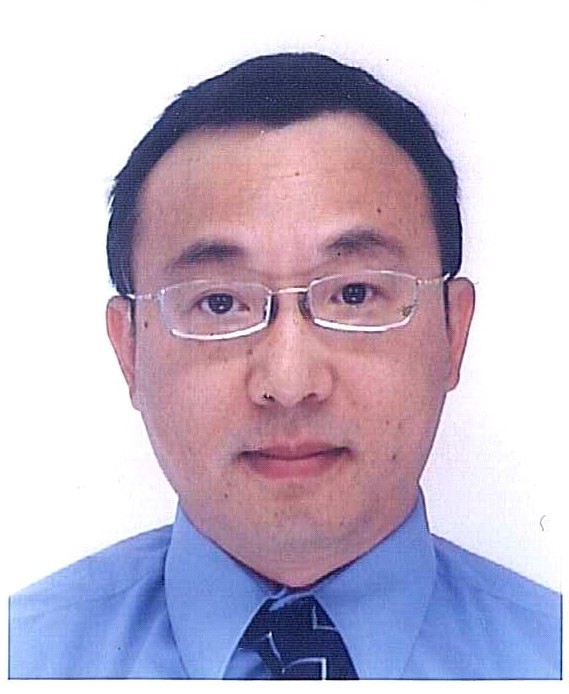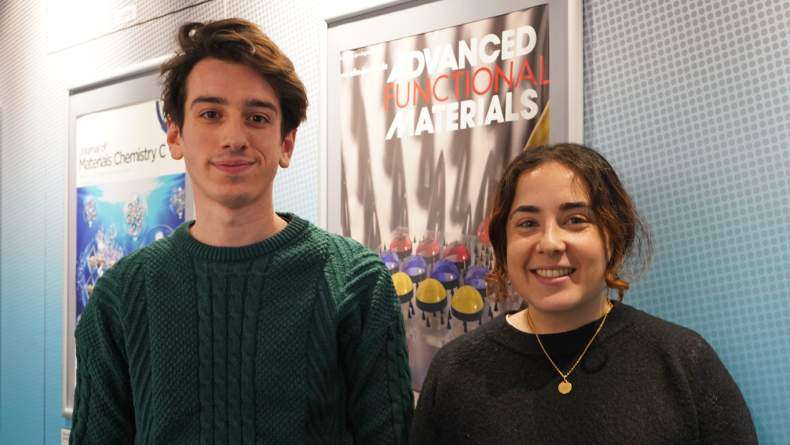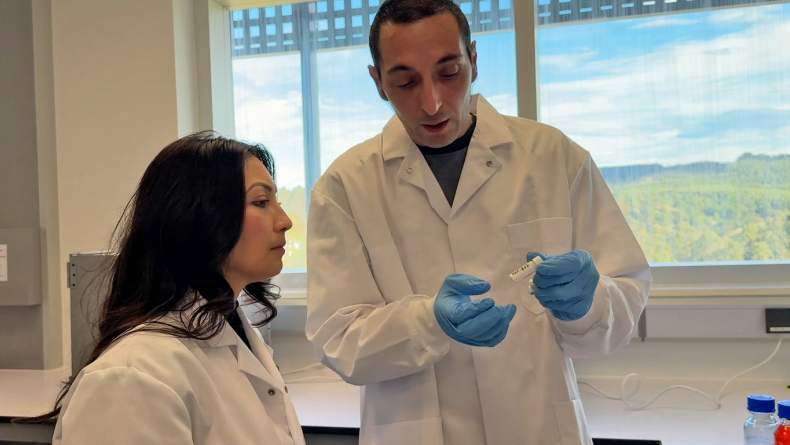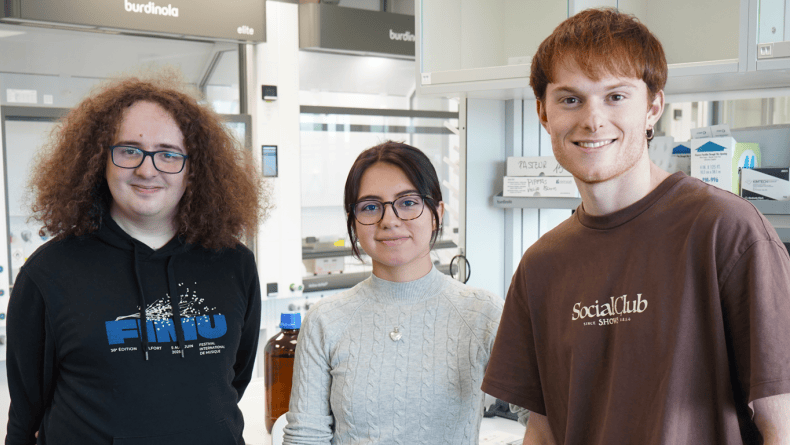BCMaterials invited talk: Qi Zhang

Nanomaterials/ferroelectric thin films and their applications
 Qi Zhang
Cranfield University
Q. Zhang graduated in chemistry at Wuhan University, Wuhan, China. He received his MSc in inorganic materials at Wuhan University of Technology, Wuhan, China. He obtained his Ph.D. degree in chemistry at Monash University, Melbourne, Australia. He joined Cranfield University as a research fellow in 1996 and then a senior research fellow from 1998. He became a senior lecturer in 2007 in Cranfield University. He has been a visiting professor in Wuhan University of Technology, China since 2012.
His work is focused on the functional materials for sensors, actuators and electrocaloric cooling and on the energy materials for electrochemical energy storage. He has published over 200 ISI papers and 4 chapters in books with a total citation of ~4500 and H-factor of over 30. Some of his publications appeared in the journals with high impact factors, such as, Science, Energy & Environ. Sci., Mater. Sci. and Eng. R: Report, Adv. Funct. Mater., Nano Lett., etc. In addition, he edited 1 book entitled Electrocaloric Cooling. He was one of the globally pioneering investigators on the thin film electrocaloric effect.
Qi Zhang
Cranfield University
Q. Zhang graduated in chemistry at Wuhan University, Wuhan, China. He received his MSc in inorganic materials at Wuhan University of Technology, Wuhan, China. He obtained his Ph.D. degree in chemistry at Monash University, Melbourne, Australia. He joined Cranfield University as a research fellow in 1996 and then a senior research fellow from 1998. He became a senior lecturer in 2007 in Cranfield University. He has been a visiting professor in Wuhan University of Technology, China since 2012.
His work is focused on the functional materials for sensors, actuators and electrocaloric cooling and on the energy materials for electrochemical energy storage. He has published over 200 ISI papers and 4 chapters in books with a total citation of ~4500 and H-factor of over 30. Some of his publications appeared in the journals with high impact factors, such as, Science, Energy & Environ. Sci., Mater. Sci. and Eng. R: Report, Adv. Funct. Mater., Nano Lett., etc. In addition, he edited 1 book entitled Electrocaloric Cooling. He was one of the globally pioneering investigators on the thin film electrocaloric effect.
Qi Zhang
Cranfield University
Nanomaterials exhibit novel characteristics compared to the bulk materials, such as increased strength, specific surface area, chemical reactivity or conductivity. Many nanostructured materials, such as, nanoparticles, core-shell, nanowires, etc. are reported for the applications in inkjet printing, conductive transparent films and batteries, etc. Ferroelectric thin films of metal oxide perovskites deposited by a sol-gel process and their giant electrocaloric effects (EC) are also reported. With the discovery of giant EC in ferroelectric thin films some, the studies have proposed different approaches to achieve giant EC in different compositions or forms of ceramics. As a result, it becomes critically important to design giant EC materials through their microstructures, composition, and phases etc. The EC applications are considered as a new emerging solid-state refrigeration technique that can be used to develop the next-generation cooling/heating pump devices by downscaling from the macroscale to the micro or nanoscale. Qi Zhang
Cranfield University
Q. Zhang graduated in chemistry at Wuhan University, Wuhan, China. He received his MSc in inorganic materials at Wuhan University of Technology, Wuhan, China. He obtained his Ph.D. degree in chemistry at Monash University, Melbourne, Australia. He joined Cranfield University as a research fellow in 1996 and then a senior research fellow from 1998. He became a senior lecturer in 2007 in Cranfield University. He has been a visiting professor in Wuhan University of Technology, China since 2012.
His work is focused on the functional materials for sensors, actuators and electrocaloric cooling and on the energy materials for electrochemical energy storage. He has published over 200 ISI papers and 4 chapters in books with a total citation of ~4500 and H-factor of over 30. Some of his publications appeared in the journals with high impact factors, such as, Science, Energy & Environ. Sci., Mater. Sci. and Eng. R: Report, Adv. Funct. Mater., Nano Lett., etc. In addition, he edited 1 book entitled Electrocaloric Cooling. He was one of the globally pioneering investigators on the thin film electrocaloric effect.
Qi Zhang
Cranfield University
Q. Zhang graduated in chemistry at Wuhan University, Wuhan, China. He received his MSc in inorganic materials at Wuhan University of Technology, Wuhan, China. He obtained his Ph.D. degree in chemistry at Monash University, Melbourne, Australia. He joined Cranfield University as a research fellow in 1996 and then a senior research fellow from 1998. He became a senior lecturer in 2007 in Cranfield University. He has been a visiting professor in Wuhan University of Technology, China since 2012.
His work is focused on the functional materials for sensors, actuators and electrocaloric cooling and on the energy materials for electrochemical energy storage. He has published over 200 ISI papers and 4 chapters in books with a total citation of ~4500 and H-factor of over 30. Some of his publications appeared in the journals with high impact factors, such as, Science, Energy & Environ. Sci., Mater. Sci. and Eng. R: Report, Adv. Funct. Mater., Nano Lett., etc. In addition, he edited 1 book entitled Electrocaloric Cooling. He was one of the globally pioneering investigators on the thin film electrocaloric effect.Related news
Sara Martín and Stefano Lunghi Join BCMaterials as New Researchers
BCMaterials is pleased to welcome two new members to its research team: Sara Martín Iglesias, a postdoctoral researcher in the Active and Smart Materials research line, and Stefano Lunghi, a…Nanomaterials for Water Remediation and Valorization
Scientific staff at BCMaterials are developing next-generation nanomaterials combined with naturally sourced polymer membranes for water decontamination and reuse. These advanced materials not only…Three New Resarchers Join BCMaterials
The new year has brought BCMaterials the arrival of three new young scientists to our staff. They are the pre-doctoral researchers Karen Cano and Mikel Russo, along with the post-doctoral researcher…BCMaterials Activities at Emakumeak Zientzian (Women in Science)
This year marks the 10th anniversary of the Emakumeak Zientzian (Women in Science) initiative, which brings together more than 30 Basque organizations (universities, research centers, companies…) to…



